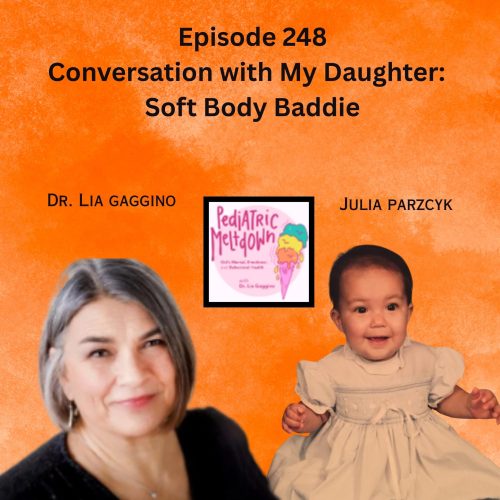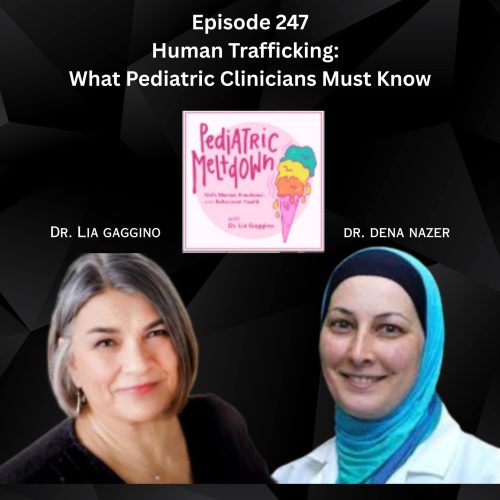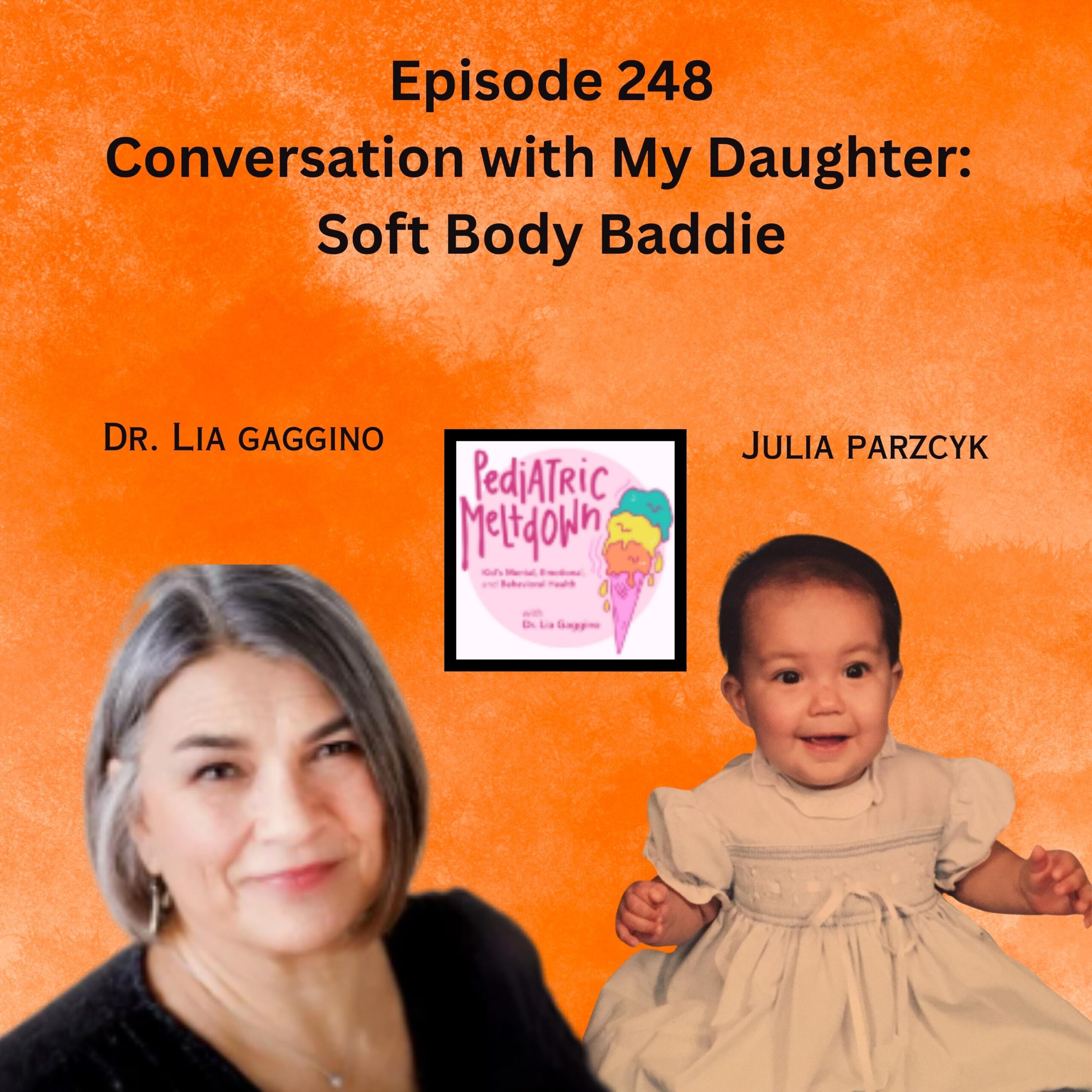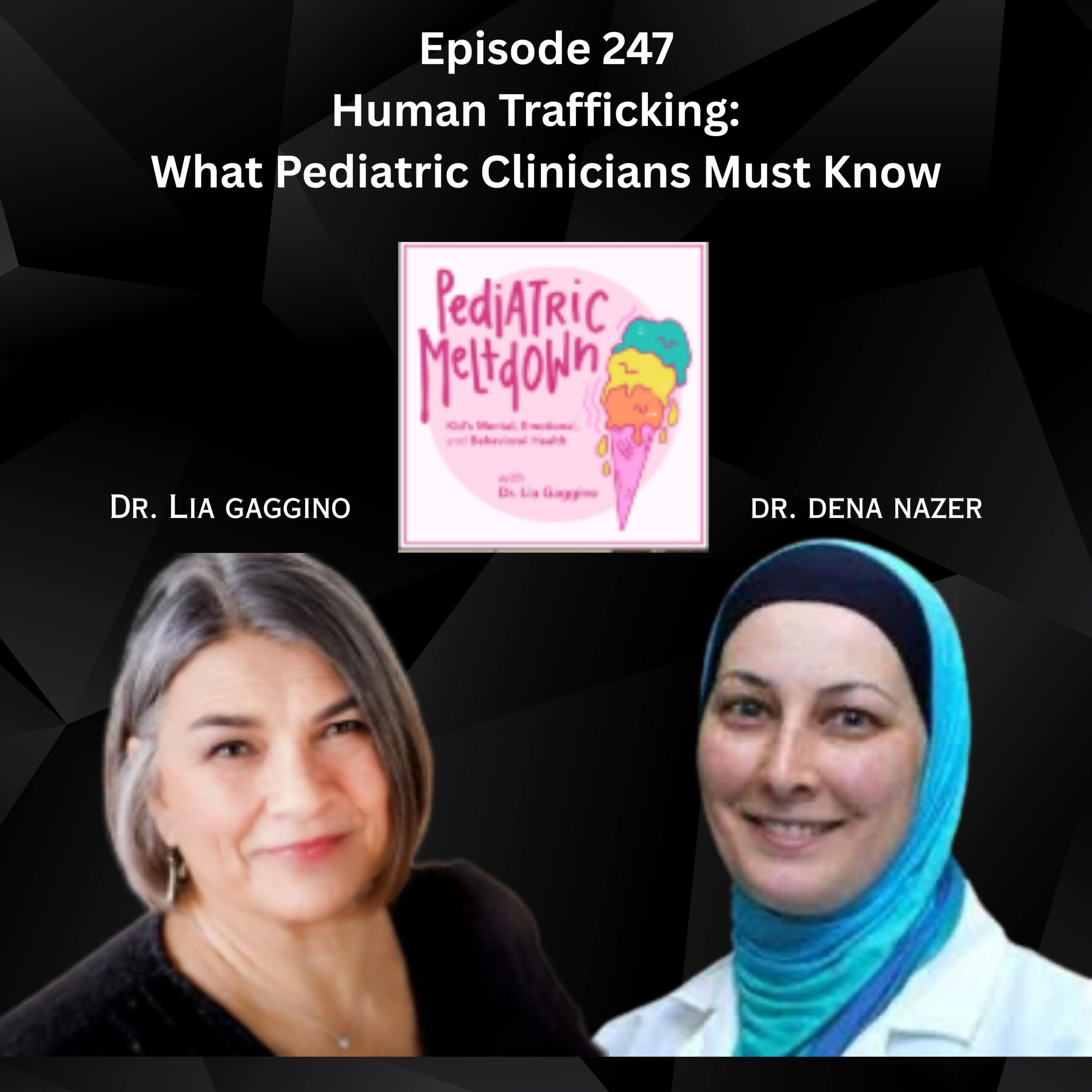Do you have a picky eater in the house? Then this is the episode you’ve been waiting for. Dr. Lia Gaggino’s guest this week is Dr. Natalie Prohaska where they’ll discuss avoidant, restrictive food intake disorder (ARFID), which was previously referred to as feeding disorder of children. They will break down the three different types of ARFID and discuss how they affect children’s psychosocial and nutritional functioning. As the COVID-19 pandemic continues to affect our daily lives, mental health concerns such as eating disorders have seen a resurgence. Whether it’s a fear of choking or contamination, this episode will provide valuable insight on how your clinician properly diagnoses and treats ARFID in order to improve the overall health and well-being for the child.
[00:33 -13:37] Understanding Avoidant Restrictive Food Intake Disorder (ARFID)
- ARFID is not related to body image distress, but rather caused by sensory sensitivity, lack of interest in eating, or fear of inversive events
- ARFID can affect nutrition, weight, and psychosocial functioning, and can be seen in both children and adults
- ARFID is characterized by three types of symptoms: sensory sensitivity, lack of interest in eating, and fear of inversive events.
- ARFID can progress from one category to another and may require specific treatment for feeding-related anxiety or OCD.
[13:38- 25:54] How to Manage Picky Eating in Children: Strategies and Tips
- Breaking down food into smaller portions and gradually adding ingredients can help make it more manageable for picky eaters.
- Children with oral aversions, such as those who were in the NICU and had tube feedings, may benefit from occupational therapy.
- Encouraging children to describe the appearance, texture, smell, and taste of food in non-judgmental language can reduce their disgust response.
- Using a five question approach, children can approach new foods more like a scientist and think objectively about what they are experiencing.
[25:55 -37:14] Overcoming Fear of Food in Kids: The Step-by-Step Approach
- Aversive events such as choking on food can lead to a fear of eating, which can be treated similarly to OCD.
- Treatment involves creating a hierarchy of manageable steps in challenging fears, starting with softer or liquid foods.
- Parents play a crucial role in this treatment, as they need to provide education, empowerment, and motivation to their child.
- Children with intellectual disabilities or autism may require a different feeding program tailored to their unique needs.
[37:15 – 44:41] Understanding ARFID: Diagnosis, Comorbidities, and Resources for Families
- ARFID is a distinct illness from anorexia, though picky eating can sometimes lead to anorexia later on.
- ARFID patients typically have a limited diet high in dairy and carbohydrates, while anorexia patients prefer produce and proteins.
- Comorbidities with ARFID include anxiety, ADHD, autism, and medical issues like reflux or celiac disease
- Families can find helpful information and support through resources like FEAST, AED, and the book “ARFID: A Guide for Parents and Caregivers.
[44:42 -51:00] Closing segment Takeaway
Links to resources mentioned on the show
AAP Pediatrics article:
Classification of Children and Adolescents with Avoidant/Restrictive Food Intake Disorder
AAP Clinical Report
Identification and Management of Eating Disorders in Children and Adolescents https://publications.aap.org/pediatrics/article/147/1/e2020040279/33504/Identification-and-Management-of-Eating-Disorders
Online resources:
FEAST – Support for families affected by eating disorders https://www.feast-ed.org
EQUIP – Online eating disorder treatment https://equip.health
Book:
Avoidant Restrictive Food Intake Disorders: A Guide for Parents and Carers https://www.amazon.com/ARFID-Avoidant-Restrictive-Intake-Disorder/dp/0367086107
Other episodes you may like:
Episode #61
Eating Disorders: Prevention in Primary Care
Episode #62
Eating disorders: Recovery Coaches Strengthen the Healing Team
Episode #63
Eating disorders: Feeding Our Kids
https://302.buzz/63EatingDisordersFeeding
Key quotes for Twitter:
“These kids can’t go out to dinner with their families or they can’t go away to sleepover camp because of distress around what food is going to be there.”…Dr. Natalie Prohaska
“For other people, they can just try new things… but for these kids, the fear is so big.”…Dr. Natalie Prohaska
THANK YOU FOR YOUR SUPPORT!








